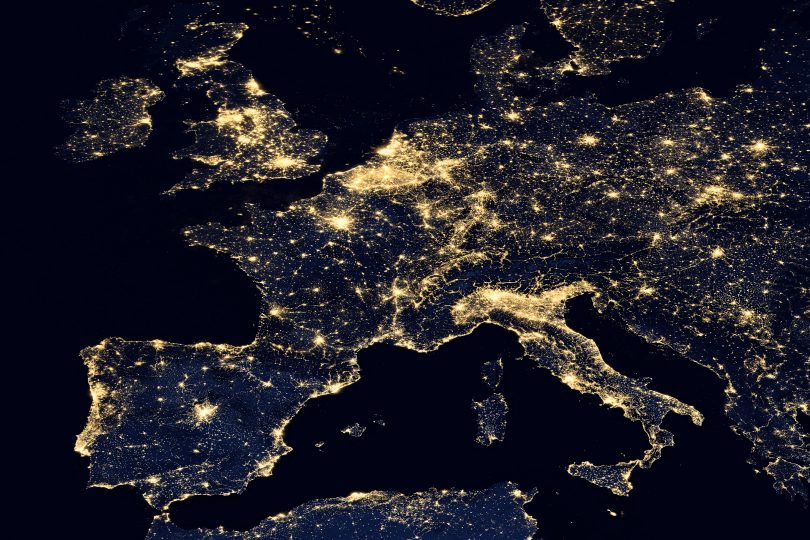The favoured dish of a medieval Pope may help free the CBD industry in Europe from its regulatory limbo.
Last year’s European Commission (E.C.) designation of CBD as a Novel Food rocked the fast-growing industry. Leading the fight against it is Lorenza Romanese, Managing Director of the European Industrial Hemp Association (EIHA).
The thrust of the EIHA’s position is this; CBD, as a hemp extract, has been used across Europe for hundreds of years.
Pope Martin V
The EIHA, which has over 250 members in over 26 countries, has documented more than 25 examples, stretching back over 800 years. These include a soup recipe from the personal chef of Pope Martin V – dating back to the 14th Century – which saw juices from the flowers and leaves of the cannabis plant mixed with saffron, spices, bread-crumbs and onion.
Also in Italy, from the 19th Century, the EIHA has unearthed evidence which shows hemp flowers being cooked with bacon to make a tortellini. Ireland, Germany, Sweden, Lithuania, and elsewhere, all document the widespread use of cannabis extracts in food and drinks.
Ms Romanese told CBD Testers: “We have Pope Martin V eating cannabis soup, and evidence of hemp extracts in an Italian Tortellini, along with much evidence from elsewhere. These all show that hemp extracts, containing cannabinoids – of which CBD is the major one – have been widely consumed in Europe, over many hundreds of years.
“We need this evidence to demonstrate to the Member States that hemp extracts have been consumed as traditional food for centuries – and that they are not a Novel Food.”
Click here or use the sign-up form below to subscribe to the CBD Business Weekly Newsletter.
Two Challenges Possible
There are two main options now available to the EIHA to challenge the Novel Food designation, and its preferred choice is known as the Article 4 route. This clause in the Novel Food regulations permits an opportunity to demonstrate the food in question has been used prior to May 1997, when the regulations came into effect.
To progress this challenge the EIHA has secured the agreement of one of the 27 European Union (E.U.) member states, sympathetic to its stance. Ms Romanese would only confirm that it’s an eastern European country – and the rules of the Single Market means that, if acknowledged, CBD can be freely-traded as across the E.U.
Ms Romanese is assessing some additional evidence with the focus of identifying ‘accurate’ ‘sound’ and ‘reliable’ historical records showing hemp and cannabis in traditional traditional food and food recipes.
Still Novel ‘Risk’
She said: “There is a risk that after we show the evidence CBD will still be considered Novel. We have good evidence that hemp extracts were not used as a medicine, but used as a food, and we want to make that evidence much stronger.
“Along with the right evidence, we need the right level of political will from the country, too, and this country has the belief that hemp has an established and historic food use.”
Mr Romanese is also considering a second challenge, which again relates to one of the clauses in the Novel Food regulation, this time Article 5.
New European Commission
There is a belief that the newly-installed European Commission reflects the less bureaucratic mindset of the Continent’s ‘populist’ movements, and has a more sympathetic view of CBD.
An Update On British CBD and the Novel Food Regulations in EU
An Article 5 challenge stipulates that the ‘E.C. may decide, on its own initiative or upon a request by a Member State,…whether or not a particular food falls within the definition of Novel Food’.
Before this happens the industry has asked for a meeting with the United Nations representatives’ in Brussels, next month, where its hopes CBD will be removed from the Schedule IV drug classification, as previously recommended by the World Health Organisation.
Ms Romanese continued: “Member states are reluctant to enforce the Novel Food regulation. They know that by classifying hemp a Novel Food they will kill the market, so they are waiting and waiting for someone else to take a decision.
“While the U.N. will not inform whether CBD is a novel food, or not, it will determine whether CBD is a food or a drug, and if it’s a food, this could mean it is treated more favorably by regulators across Europe.”
While scores of European businesses have faced enforcement action as a result of the Novel food ruling, it is not legally binding and should only be used as a reference by national authorities.
World Health Organisation And CBD
In the light of a favorable U.N. ruling there may well be less pressure to penalise the industry and the focus may shift to ensuring consumers are sold quality and safe products, say the EIHA.
Nevertheless, there will still be some businesses who will pursue the Novel Food path. These will be business who produce CBD isolates – as opposed to hemp extracts. These isolates are viewed by the industry as Novel Foods as they benefit from processing methods developed since 1997.
However, the issue with this position is that the products have to be taken off the shelves during the safety authorisation process; this can take over two years. It is also said to be very expensive – in the region of £300,000 -which is beyond the reach of many of Europe’s smaller CBD and hemp businesses.
For more articles like this one, subscribe to the CBD Business Weekly Newsletter.









